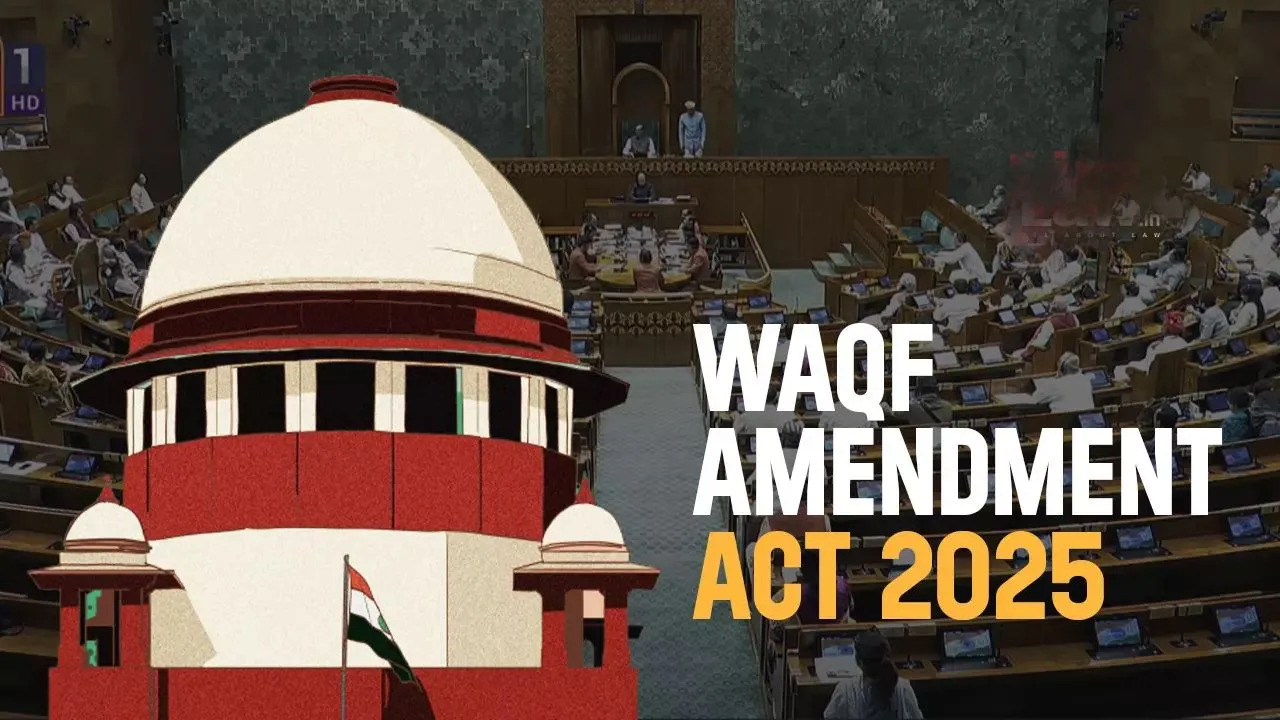View News
The-Waqf-Amendmet-Act-2025-Modernizing-the-Management-of-Religious-Endowments-in-India

The Waqf (Amendment) Act, 2025: Modernizing the Management of Religious Endowments in India
The Indian Parliament recently passed the Waqf (Amendment) Bill, 2025, marking a significant overhaul of the legal framework governing religious endowments in the country. The new law, which came into force on April 8, 2025, following presidential assent, amends the Waqf Act of 1995 and repeals the outdated Mussalman Wakf Act of 1923. Its primary aim is to ensure more transparent, efficient, and accountable management of Waqf properties.
Understanding Waqf
In Islamic law, a "waqf" refers to the permanent dedication of movable or immovable property for religious, pious, or charitable purposes. These endowments serve critical community functions and can include mosques, schools, cemeteries, and shelters. The Waqf Act of 1995 was enacted to regulate these properties and established the Central Waqf Council, State Waqf Boards, and the role of the "mutawalli" (property manager).
Why the Amendment Was Needed
Over time, several shortcomings were identified in the 1995 Act—ranging from mismanagement and encroachments on Waqf properties to inefficiencies in the functioning of Waqf Boards and Tribunals. To address these challenges and modernize the administration of Waqf assets, the Waqf (Amendment) Bill, 2025, was introduced and passed.
Key Provisions of the Waqf (Amendment) Act, 2025
-
Redefinition of Waqf Creation
The amendment eliminates the concept of "waqf by user," requiring a formal declaration or endowment by a practicing Muslim property owner. It also ensures that "waqf-alal-aulad" (family waqfs) cannot be used to deny inheritance rights to female heirs. -
Inclusive Governance
The composition of the Central Waqf Council and State Waqf Boards has been broadened to include women, members from various Muslim sects, and even non-Muslims, aiming to create a more diverse and representative management structure. -
Digitized Registration and Record-Keeping
A central online portal and database will now facilitate Waqf property registration and management, promoting transparency and improving record maintenance. -
Revised Tribunal Structure
Waqf Tribunals will now be headed by serving or retired District Court judges and include serving or retired joint secretaries from state governments. The requirement for a Muslim legal expert has been removed. Importantly, Tribunal decisions can now be appealed in the High Court. -
Streamlined Survey and Mutation Procedures
Responsibility for Waqf property surveys will shift from the Survey Commissioner to the District Collector or a designated official. The Act introduces a clearer process for property mutation and conversion into Waqf land, ensuring due notice to all stakeholders. -
Repeal of the Mussalman Wakf Act, 1923
By repealing the older Act, the 2025 amendment eliminates potential legal conflicts and creates a unified legal framework under the amended 1995 Act.
Mixed Reactions and Concerns
The government's stance is that the new law is a landmark reform intended to benefit the Muslim community by safeguarding and better managing Waqf assets. They highlight the transparency, digitization, and accountability measures introduced.
However, critics have raised several issues. Some argue that including non-Muslims in Waqf institutions may infringe on religious autonomy as guaranteed by the Constitution. Others are concerned that ending "waqf by user" might exclude long-established religious endowments from legal protection. There is also ongoing debate about the applicability of the Limitation Act, 1963, to Waqf properties, which could open the door to adverse possession claims.
Conclusion
The Waqf (Amendment) Act, 2025, represents a bold attempt to reform the administration of Waqf properties in India. Its effectiveness will depend on implementation by the relevant authorities and its ability to balance improved governance with the concerns of stakeholders. As the reforms unfold, close monitoring will be essential to assess their real-world impact and ensure the intended benefits reach the community.
"Unlock the Potential of Legal Expertise with LegalMantra.net - Your Trusted Legal Consultancy Partner”
Disclaimer: Every effort has been made to avoid errors or omissions in this material in spite of this, errors may creep in. Any mistake, error or discrepancy noted may be brought to our notice which shall be taken care of in the next edition In no event the author shall be liable for any direct indirect, special or incidental damage resulting from or arising out of or in connection with the use of this information Many sources have been considered including Newspapers, Journals, Bare Acts, Case Materials , Charted Secretary, Research Papers etc.
Prerna Yadav
LegalMantra Team

